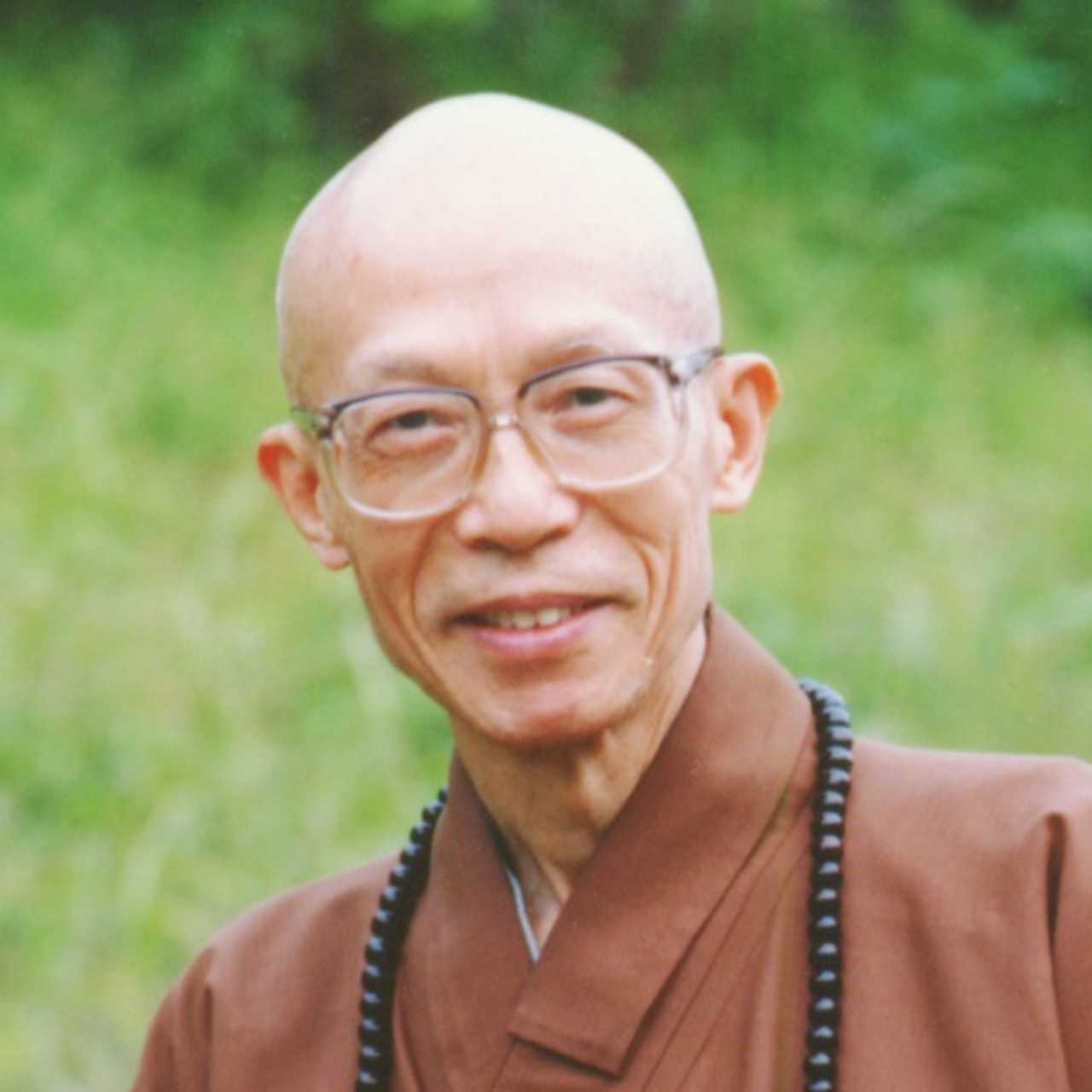Between Master and Disciple: Neither Anger Nor Love

A practitioner should not feel proud if a master thinks highly of her, wishes to accept her, and shows affection for her. If he or she is driven away by the master, the disciple should feel no hatred. Similarly the master should not feel proud even if surrounded by many followers. Nor should there be unhappiness if all the practitioners leave.
Maintaining such an attitude of equanimity is not easy. An ordinary person will find it difficult to be impartial when he considers his own merits; he will be reluctant to see his faults for what they are or he may be apt to run down his genuine good points. Although they appear different, self-deprecation and pride are really the same thing.
Self-deprecation stems from a feeling of insecurity or worthlessness. The difficulties of modern Western life often provoke such feelings. The insecurity can have a negative effect if it leads you to conclude; "What can a person like me accomplish? I can't do anything." But insecurity may also be positive. It may lead you to strive towards your goals, attain well being in life, gain self-respect. Then you may feel: "What I have done was not easy. Others are not as good as I because they cannot match my outstanding achievements!" Of course this is pride.
Spiritual masters can also be proud. A master might say to himself, if not exactly to others; "I have practised for many years and have sat with many great masters. Now I have reached my ultimate attainment. But these disciples of mine have not reached that state. They are far from my level of attainment. You all have a long way to go to catch up with me."
Sometimes a Chan master acts like a dictator. But this is not necessarily proof that he is proud. The question is what does he feel inside himself. His aloofness may have something to teach you so do not be too quick to judge. Once upon a time a woman asked me, "Shifu, have you had any problems recently?" I said, "As far as I am concerned there are no problems."
"Ah!" said the woman. "As soon as I saw you I knew you were proud. There are always problems. Unless you have them you cannot see what they are. How can you say you never have problems?"
I had to explain my attitude. If I set about doing something the obstacles I encounter do not appear as problems to me. If something cannot be accomplished, I do not waste my time trying to do it. If something can be accomplished then it is a matter of discovering how. In neither case is there a problem. Is this pride? To witness pride in another you must look closely at the individual's motivation.
Suppose as many people came to the Chan Centre as attend meetings of the Hare Krishna or TM centres. I might say; "Formerly I could not compete with these groups but now I am catching up with them." Certainly this is pride arising from feelings of competition. But there is nothing here to compete about. Some people are taller or shorter than you are, that is all. Some people are certainly more beautiful and cleverer than you are. That is all. No problem. Learn not to compare yourself with other people. Of course there are differences but you should neither feel put down nor proud because of them. You get on with your thing.
However, suppose you have a dog. It will be happy if you praise it. If you give it a scolding; -"You greedy, lazy, nasty dog!" - you might spoil his whole day. People are not so different, so reflect on what you say to them.
Self-respect and helping others to a natural confidence are activities to be cultivated in Chan training. Self-respect is a sign that your faith in the method is getting stronger. With practice you begin to see things that others may miss and from this springs compassion. A practitioner will feel that all persons deserve compassion and will try to behave in a helpful, sharing way without generating antagonism.
A master's duty is to teach his or her followers to practice so that they may leave their state of ignorance. Yet, the more people are attracted, the heavier the teacher may feel the weight of such responsibility and the greater a sense of mission. The teacher will try many methods, some of them mistakes perhaps, some of them certainly confronting to your ego. Can you take it and learn from the master's attitude?
A disciple must do his or her own work but should neither be proud of that, thinking the master is lucky to have him around, nor feel any success is due solely to the teacher and therefore nothing to do with him. A practitioner should be reverent to the master, dedicating himself or herself unconditionally to the way. The attitude appropriate to a disciple is not that appropriate to a master. Do not be confused about this.
- Publication date:
- Modified date:
- Categories: 1984 Dharma Talks Sheng Yen
-
 Western Chan Fellowship CIO
Western Chan Fellowship CIO - Link to this page
©Western Chan Fellowship CIO 1997-2026. May not be quoted for commercial purposes. Anyone wishing to quote for non-commercial purposes may seek permission from the WCF Secretary.
The articles on this website have been submitted by various authors. The views expressed do not necessarily represent the views of the Western Chan Fellowship.
Permalink: https://w-c-f.org/Q372-115
